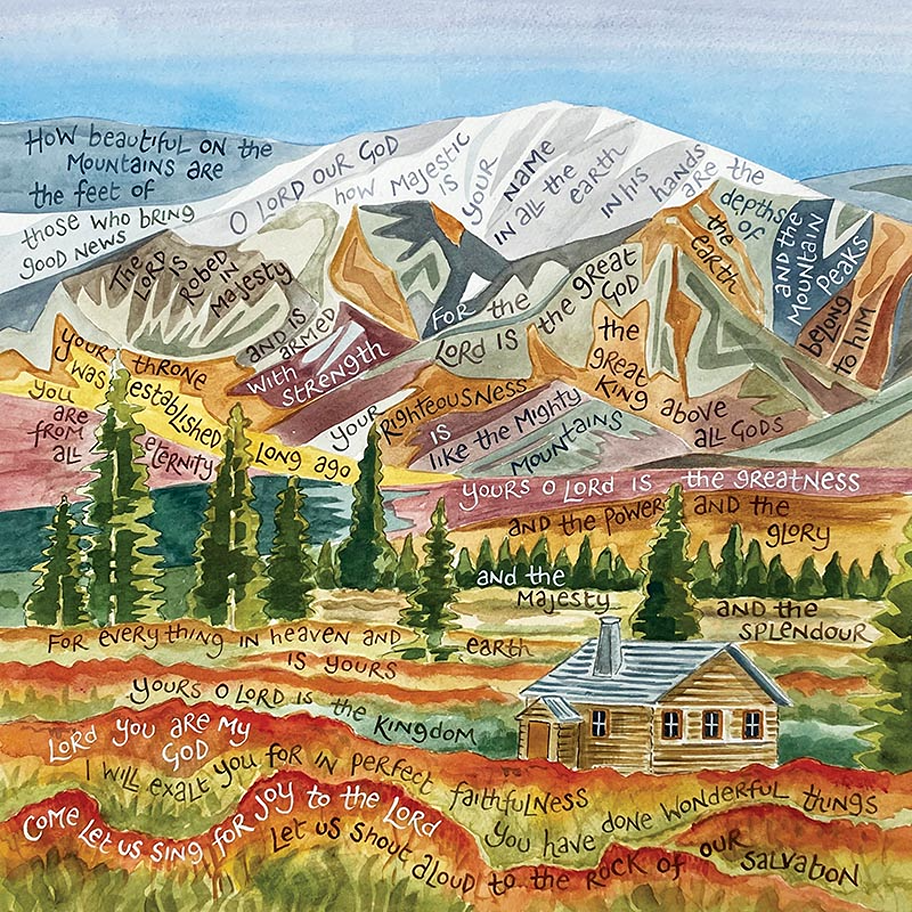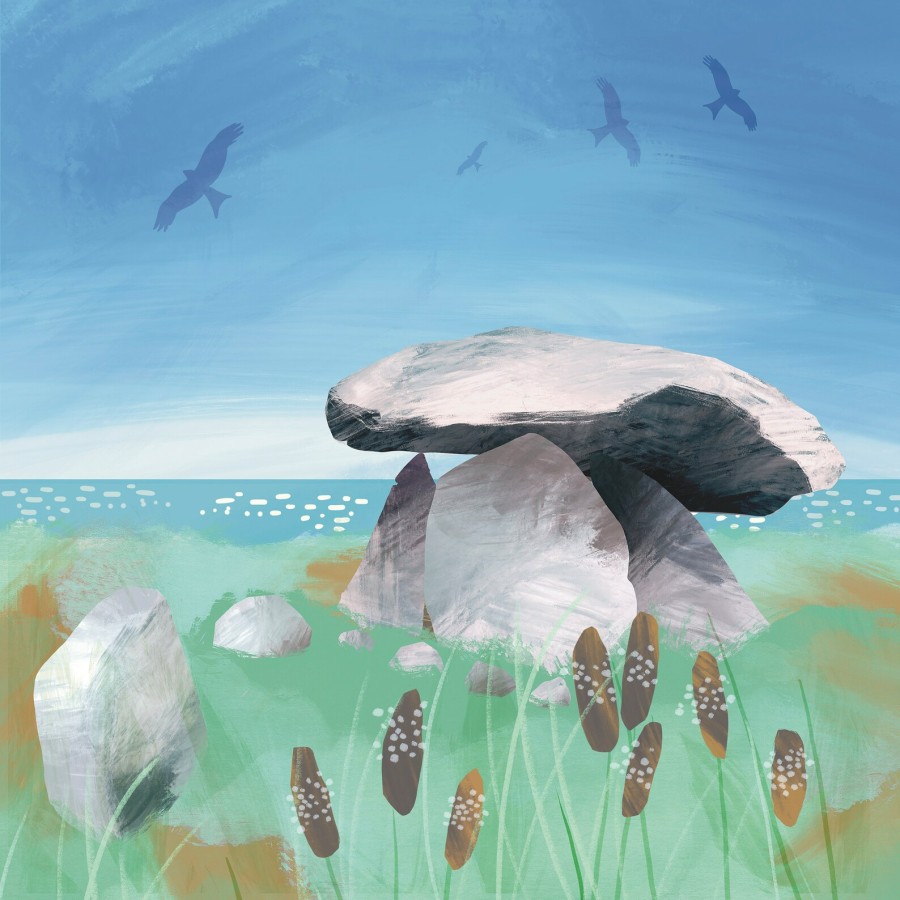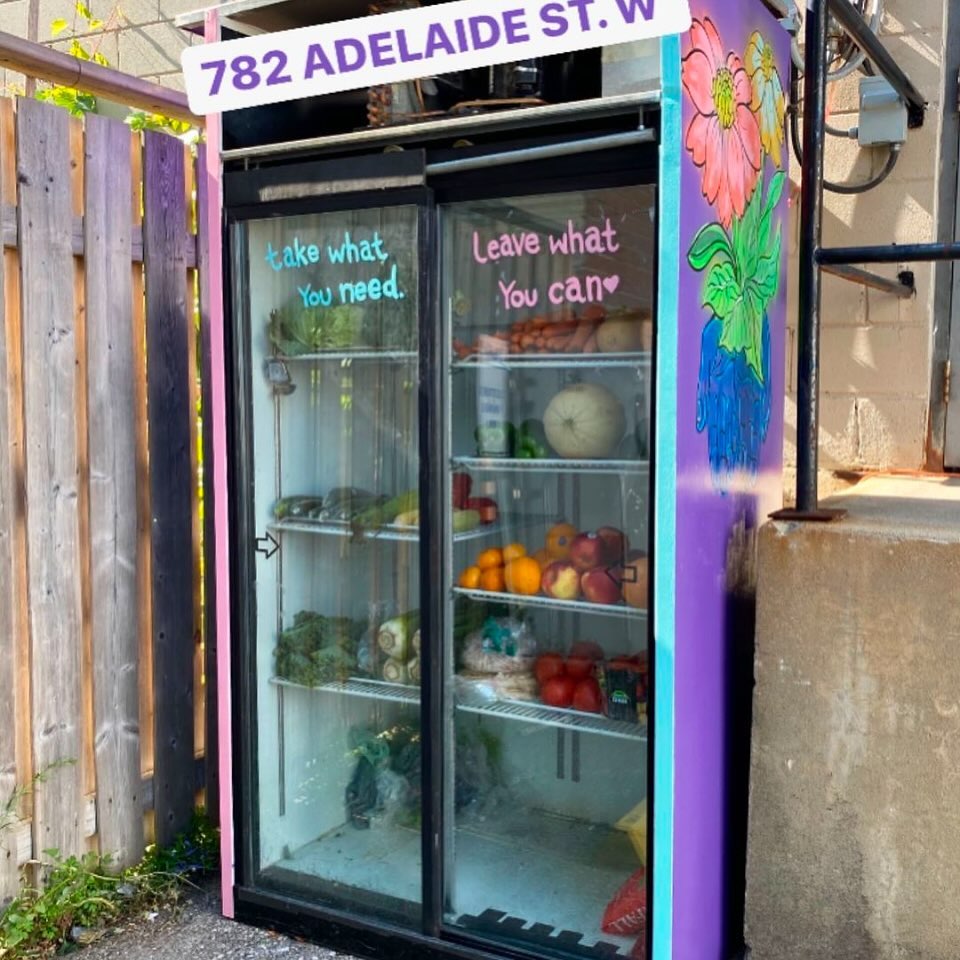The Many Benefits of Community TimeBanks
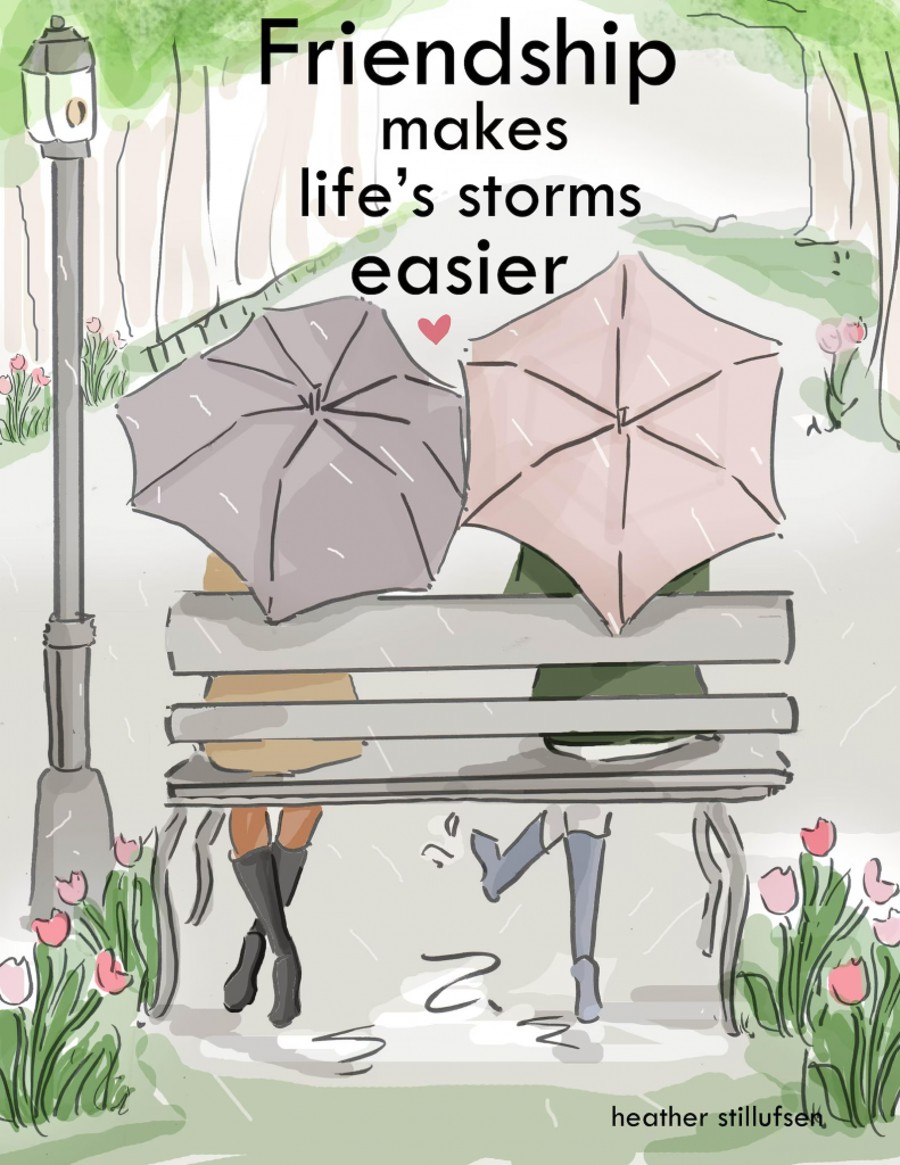
Timebanks let people swap skills and services based on time, not cash. If you spend an hour walking someone’s dog, you earn an hour of help in return—maybe a guitar lesson or some DIY advice.
Timebanks break down barriers between people, creating connections that go beyond economics. These networks often grow into support systems, to celebrate everyone’s talents.
Some jobs (building, childminding) need qualifications and checks. For cooking and gardening jobs, read up on:
- Food safety for people and pets
- Pet-friendly gardens and wildlife-friendly gardens
- How to help stop birds flying into windows
Here’s an example. A young mum with little money can sew. So she sews hems for people in the community. In return, hours earned means someone walks her dog, if she breaks her leg.
Extra hours are used to mend her garden gate and paint her house. The people who do these jobs then earn ‘money’ to pay for someone to run errands for an elderly relative.
To find local timebanks or to set one up, visit Timebanking UK where you can also download Timebank software, which can be used alongside training manuals for administrators. Or just post requests and offers on a community bulletin board.
Find more inspiration at Timebanking sites worldwide:
Building Real Connections
Community TimeBanks help people meet neighbours they might not otherwise know. By working together and sharing time, trust grows between people from all backgrounds.
These genuine connections create a sense of belonging, which is often missing in modern life.
Valuing Everyone’s Skills
Every member has something to offer, whether it’s walking a dog, fixing a tap, or teaching a language. TimeBanks recognise the worth of everyday skills, not just professional expertise.
This helps people feel proud of what they can do and highlights the wide range of talents within a community.
Encouraging Fair Exchange
Money isn’t the only measure of value in a TimeBank. One hour of gardening is worth the same as an hour teaching maths or preparing meals.
This fairness means everyone’s time is equal, which breaks down social barriers and brings people together on common ground.
Improving Wellbeing
Taking part in a TimeBank supports mental and emotional health. People feel less lonely when they give and receive help.
Acts of kindness and useful exchanges can lift moods, build self-esteem, and offer purpose, especially for those who might feel isolated.
Sharing Knowledge and Experience
TimeBanks are perfect for learning new skills in a friendly, hands-on way. Members teach each other everything from cooking tips to bike repair, often for the sheer pleasure of sharing.
This spreads knowledge in a way that’s local and personal, without formal lessons or big expenses.
Saving Money
By swapping services, people can get help without spending cash. Whether it’s getting a lift to the doctor’s, help with childcare, or learning a new hobby, these shared services lighten the load.
This is especially useful for families, pensioners, and anyone feeling the pinch.
Strengthening Community Resilience
When neighbours know and trust each other, it’s easier to respond to emergencies or changes. In a crisis, TimeBanks can organise support fast, mobilising skills and care where it’s needed.
This boosts a community’s ability to get through tough times together.
Making Volunteering Accessible
Traditional volunteering can be hard to fit around work or family. TimeBanks offer flexibility—people can help in ways that suit their schedule and preferences, without long-term commitments.
This opens volunteering up to more people, spreading the benefits even further.
Supporting Local Projects
TimeBanks often run group activities, such as community clean-ups or shared gardens. By pooling time and talent, these projects become possible even with limited resources.
People see real results in their neighbourhoods, which builds pride and a sense of achievement.
Fostering Inclusion
By welcoming people of all ages, backgrounds, and abilities, TimeBanks break down barriers. Everyone’s contribution is welcome, whether large or small.
This makes spaces more friendly and inclusive, where diversity is seen as a strength.
An Economy of Gifts and Abundance
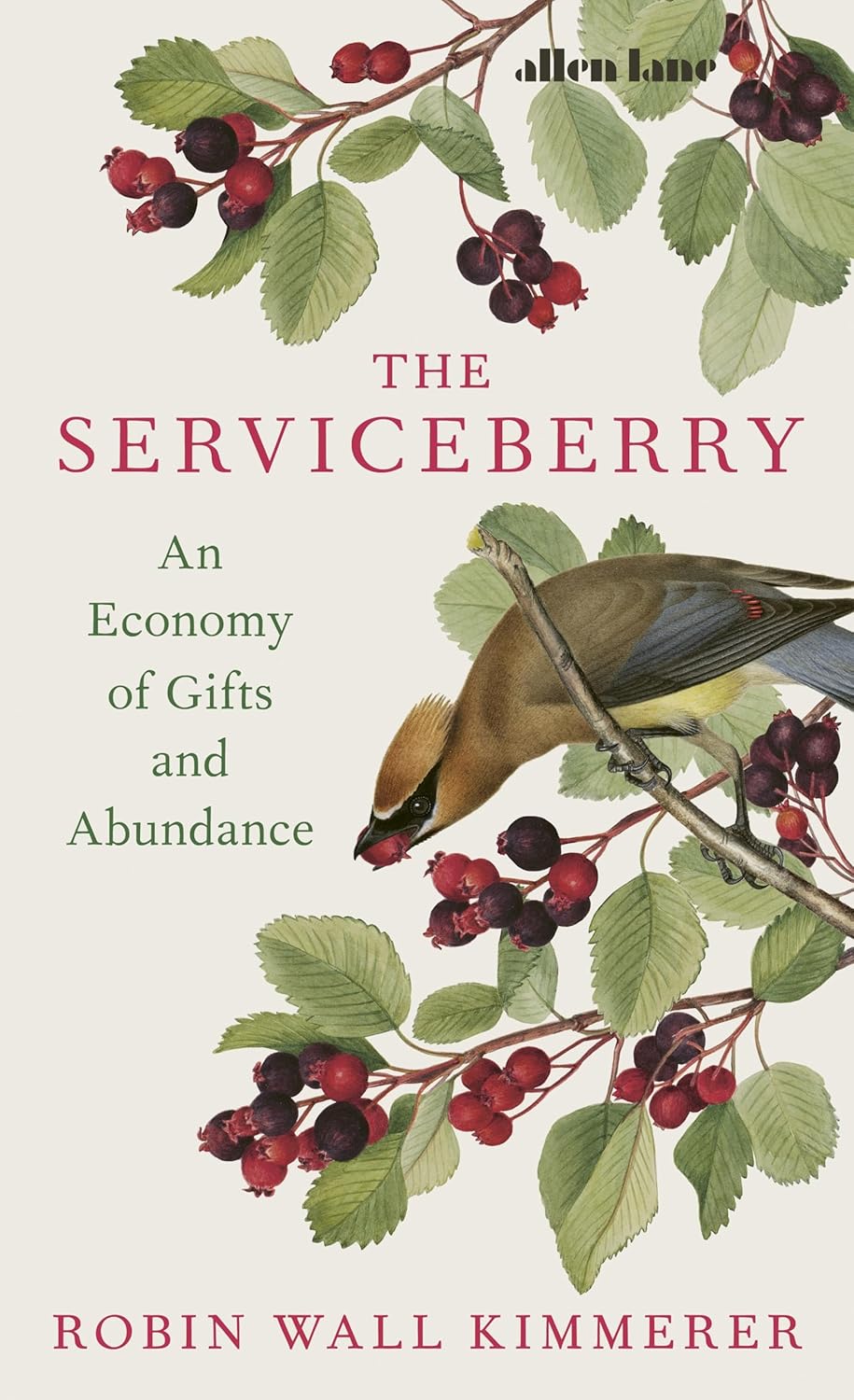
The Serviceberry looks at different ways of making money. Instead of always being in competition and trying to bring others down, why not be like this berry, and show gratitude in giving and sharing, so all can prosper?
Rather than learn from natural wisdom, our economy now hoards resources and has surrendered its values to a system that actively harms what we love.
Yet a tree distributes its wealth (food, shelter, hibernation spots) to meet the needs of its natural community. Even a decaying (dead) tree offers crevices for wildlife to nest and protect.
I have never felt such a kinship with my namesake, Robin. As in this moment, when we are both stuffing our mouths with berries. This abundance of berries feels like a pure gift from the land. I have not earned or paid for them.
There is no mathematics of worthiness that I deserve them. And yet here they are – along with the sun and the birds and the rain. The Robins and I know them as gifts. We both sing gratitude, with our mouths full.
How Trees Give Service to All
The author notes above how a tree shares it wealth (food, shelter, hibernation spots) with others, and even a decaying or dead tree, offers crevices for wildlife to nest and protect.
Ecological writer Satish Kumar writes beautifully on this subject:
Sometimes I come across a tree which seems like Buddha or Jesus: loving, compassionate, still, unambitious, enlightened, in eternal meditation.
Giving pleasure to a pilgrim, shade to a cow, berries to a bird, beauty to its surroundings, health to its neighbours, leaves for the soil.
Asking nothing in return, in total harmony with the wind and the rain. How much can I learn from a tree? The tree is my church, the tree is my template, the tree is my mantra, the tree is my poem and my prayer. Satish Kumar
Compare this with human media moguls and politicians and ruthless business tycoons. Trees are our generous neighbours, offering far more than beauty and leaves:

